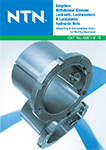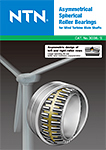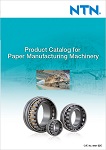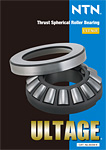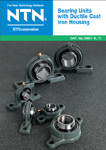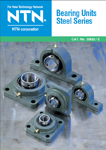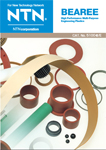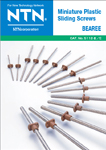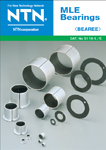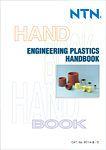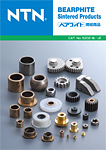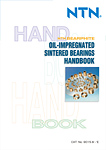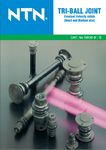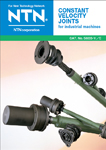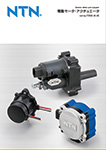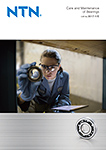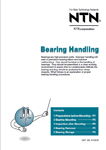Tower Singapore
08:00 - 20:00
- Home
- Construction & Mining Machinery
NSK
The lineup of NSK bearings for mining machinery are manufactured using NSK's proprietary technologies in order to provide long-life performance even under the harsh conditions found in and around the digging area.
SKF
SKF has developed bearings for such equipment. These bearings provide long life and higher limiting speeds exceeding that of conventional bearings.
FAG
Be it residential, commercial, heavy, civil or industrial edifice, they all require reliable heavy duty machinery and long term, trouble free functioning.
KOYO
JTEKT supplies both standard and customized Koyo products to serve those demanding applications.
Construction equipment used in harsh environments risk contamination from dust, mud, and huge loads, and require a certain degree of ruggedness that is different from the requirements of a common passenger vehicle.
Singapore Bearing Industrial
Offers innovative solutions to both Original Equipment Manufacturers and Aftermarket customers focusing on key markets such as Automotive, Agriculture, Construction, Railways, Steel Mills and Heavy Industries.
Our strong track record evidences the high quality, excellent reliability and the world class reputation of BEARING products.
In this rapidly transforming global age, it is our commitment to continuously enhance total customer satisfaction and provide excellent services in decades to come
Construction & Mining Machinery
Deep groove ball bearings

The most typical type of bearing, these are used in a wide range of fields. They include grease-enclosed sealed and shield bearings for ease of use.
Other types include bearings with a locating snap-ring to facilitate positioning when mounting the outer ring, expansion compensating bearings that absorb variations in bearing fitting surface dimensions due to housing temperature, and TAB bearings that are resistant to contamination in lubricating oil.
- Related Catalog
-
Angular contact ball bearings

In these ball bearings, the direct line that connects the inner ring, balls, and outer ring has a given angle in the radial direction (the contact angle).
This angle is generally designed with three kinds of contact angle.
These bearings can bear axial loads, but because of the contact angle cannot be used singly and must be used in pairs or combinations.
- Related Catalog
Four-point contact ball bearings

These are angular contact ball bearings with the inner ring divided into two. When the outer ring and inner ring are pushed in the radial direction, the balls make contact with the inner ring and outer ring at four points. One bearing is able to bear an axial load from both directions, and can be used in a two-point contact state under a general pure axial load or under a composite load with large axial load.
- Related Catalog
Double-row angular contact ball bearings
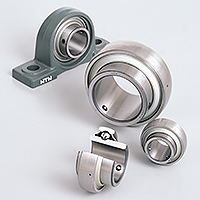
These have a structure that arranges single row angular contact ball bearings as back-to-back duplex (DB) bearings, uniting both the inner ring and outer ring.
They are able to bear radial loads and bi-directional axial loads, with ability to bear moment loads as well.
Both seal-type and shield-type bearings are available, with rated loads differing from open types.
- Related Catalog
Ball bearings for rolling bearing units
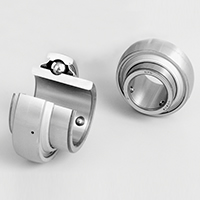
NTN uses the same steel balls and cage as used in the 62.63 deep groove ball bearing series. In addition, the units feature a double seal that combines oil-resistant synthetic rubber seals on both sides and NTN’s unique slinger (also called flinger).
The products include those with a wide inner ring that is tightened to the shaft with screws having mounting balls at two locations, and those that have a tapered bore caliber surface and are mounted on the shaft using an adapter. There are also products using the off-center collar method in which the inner ring is fixed on the shaft by means of an off-center groove on the inner groove and an off-center groove on the collar, and those in which the inner ring is mounted on the shaft through interference between the inner ring and shaft, as in the deep groove ball bearing products.
- Related Catalog
Single-direction thrust ball bearings

These bearings have balls enclosed in a cage between the shaft raceway washer that corresponds to the inner ring, and the housing raceway washer that corresponds to the outer ring. They can bear only single-direction axial loads.
- Related Catalog
Cylindrical roller bearings

These use rollers as the rolling elements and have a high load capacity. The rollers are guided by the ribs of the inner or outer ring. The inner and outer rings can be separated to facilitate assembly, and both can be fitted tightly.
On types with no ribs, either the inner or the outer ring can move freely in the axial direction, making cylindrical roller bearings ideal for use in free side bearings that absorb shaft expansion.
On types with ribs, the bearing can bear a slight axial load between the roller end surfaces and the ribs. Cylindrical roller bearings include the HT type that modifies the shape of roller end surfaces and ribs to increase axial load capacity, and the E type that has a special internal design to increase radial load capacity. The E type is standard for small-diameter sizes.
- Related Catalog
-
Double row cylindrical roller bearings

These are used in the printing cylinders of printing machinery, rolling mill rolls, and the main shafts of machine tools, where thin-walled bearings are required. In the main shafts of machine tools, the radial inner clearance is adjusted by pushing the tapered shaft into the inner ring of the tapered bore.
- Related Catalog
Needle roller bearings

These bearings use small needle rollers, 6mm or less in diameter with a width 3 to 10 times diameter, as rolling elements. As such, they feature low cross-section height, high load capacity relative to dimensions, and high rigidity due to the number of elements, and are suited to wobbling or pivoting motion.
- Related Catalog
-
Tapered roller bearings

Tapered roller bearings are designed so the inner and outer ring raceway and the apex of the tapered rollers intersect at one point on the bearing centerline. For this reason, the rollers are pushed against the inner ring rib and roll guided by the rib, receiving the loads from the inner ring raceway surface and the outer ring raceway surface as a combined load on the raceway surface.
Component force is produced in the axial direction when a radial load is applied, so the bearings must be used in pairs. The inner ring with rollers and outer ring separate, facilitating mounting with clearance or preload. However, assembled clearance is hard to manage and calls for attention. Tapered roller bearings are capable of supporting large loads, both axial and radial.
- Related Catalog
-
Double row tapered roller bearings

These have outward-facing types (for double-row outer ring use) and inward-facing types (for double-row inner ring use). As the inner clearance is adjusted to a set value, the bearings must be used in combination with components of the same product number, as marked.
In addition to duplex bearings that combine a pair of single row tapered roller bearings, there are also four-row tapered roller bearings composed of two double-row inner rings, one double-row outer ring, and two single-row outer rings. Four-row tapered outer bearings are used in high-load applications such as rolling mill roll necks.
- Related Catalog
Spherical roller bearings

These bearings have an outer ring with a spherical track surface, and an inner ring that encloses two rows of barrel-shaped rolling elements.
Various types exist that differ by internal design, including bearings with a tapered bore inner caliber. The bearings are easily mounted on the shaft with an adapter or un-mounting sleeve, and are used in many industrial machines for their high load capacity. Potential troubles include one row bearing no load when axial load is large, calling for attention to usage conditions.
- Related Catalog
-
Cylindrical roller thrust bearings

These bearings use cylindrical rollers and have single-row, double-row, and three-row types for larger load capacities.
They support axial loads only, are suited to high loads, and have high axial rigidity.
- Related Catalog
Tapered roller thrust bearings
These are thrust bearings using tapered rollers. The single-type bearings include those with and without ribs on the housing raceway washers, as well as the full complement roller type. Double-type bearings are mainly used to support axial loads such as those on rolling mill roll necks.
- Related Catalog
Spherical roller thrust bearings

These bearings have a self-aligning nature that uses barrel-shaped rolling elements, with a spherical surface on which the raceway surface of the housing raceway washer (outer ring) is centered on the guide sleeve. They can bear high axial loads.
As there are many sliding surfaces such as the roller end surfaces and the cage, oil lubrication must be used even in low-speed operation.
- Related Catalog
-
Polylubu Bearings
- Related Catalog
-
Long-Life AS Series TAB/ETA Bearings
- Related Catalog
Large Size, Long Operating Life Bearings – EA type
- Related Catalog
SL-type Cylindrical Roller Bearings
- Related Catalog
HL Bearings
- Related Catalog
Integrated Rotation Sensor Bearings
- Related Catalog
IC Tag Integrated Bearings
- Related Catalog
Needle roller and cage assemblies for connecting rod bearings
- Related Catalog
Plummer blocks

An assembly consisting of a spherical roller bearings or self-aligning ball bearing and a bearing housing with a sealing device. The bearing housing is generally made of cast iron, but can also be spheroidal graphite cast iron (Ductile cast iron) or cast steel depending on the application. A felt seal, rubber seal, or labyrinth seal is used as a sealing device.
- Related Catalog
Bearing Units – with Ductile Cast Iron Housing

The bearing box is made of ductile spheroidal graphite cast iron resulting in improved breaking strength compared to gray cast iron. Dimensions are designed to be as compact as possible, making it suitable for applications with limited space and weight.
- Related Catalog
Bearing Units – Steel Series

Rolled steel housing for general structures are processed by precision gas cut, ensuring higher rigidity compared to general cast steel. Suitable for parts where safety is a concern or with high vibration or impact due to excellent load capacity and impact resistance.
- Related Catalog
Triple-Sealed Bearings for Bearing Units

Contain a triple-lipped bearing seal, resulting in excellent dustproof and waterproof performance compared to standard bearings. A longer service life is ensured even when exposed to dust and splashes of foul water.
- Related Catalog
-
Plastic bearings

Bearings made of resin material for slippery surfaces or axes. Can be adopted for a wide range of fields and machine components due to light weight, lower cost, and versatility compared to metal. Generate less vibration and noise and have a lower slip friction coefficient due to light weight. Excellent plastic workability and electrical insulation when heated, water-resistant.
- Related Catalog
Oil impregnated bearings

Bearings with an oil-impregnated porous sintered body mainly composed of metal powder. Oil is impregnated into the pores of the bearing itself, resulting in efficient lubrication inside the bearing during operation.
- Related Catalog
Spherical plain bearings

Self-aligning bearings with sliding spherical surfaces which can support radial loads or axial loads in both directions. Ideal for vibrating or aligning movement and is widely used in construction machinery and industrial machinery.
- Related Catalog
Constant Velocity Joints

Components used to transmit rotational motion so both axes rotate at a constant velocity regardless of the angle between the input and output shaft, and torque is transmitted smoothly (bearings used here).
- Related Catalog
-
Electric Motor and Actuator

NTN has combined its core technologies of bearings and ball screw product technology with motor design technology and electrical control technology to develop the “Electric Motor and Actuator” series.
The product lineup features common components and specifications, and is available with variations in shape and size, which eliminates the need for individual designs for a shorter development time.
- Related Catalog
Maintenance
- Related Catalog
-
Multi Track Magnetic Ring

This is a ring-shaped part developed to detect the angle of mainly robot joints and enables angle information for the absolute angle to be outputted when using it in combination with a dedicated sensor. In addition to it having superior environment resistance when compared to optical type sensors, it also contributes to more compact devices since it is thin and lightweight. Furthermore, it is also easy to apply for robot joints due to its hollow shape which is large enough to allow cables and such items to pass through internally. Two types, a radial type and axial type, are available with different detection directions.
(Related news)
July 17, 2018: NTN to Begin Mass-production of Newly Developed Axial Type “Multi Track Magnetic Ring”
https://www.ntnglobal.com/en/news/new_products/news201800072.html



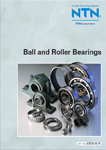
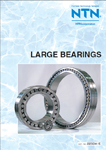
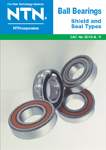
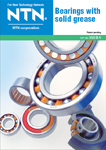
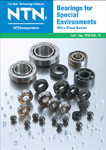
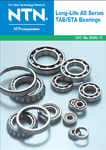
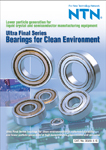
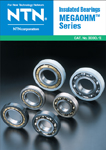
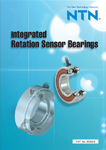
![Photo: Deep Groove Ball Bearings for High-speed Servo Motors [Type MA]](/content/files/picture/thumb3103.jpg)
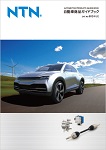
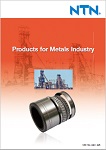
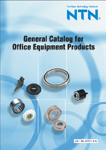
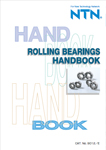
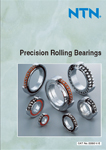
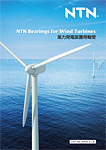
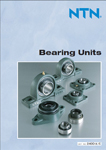
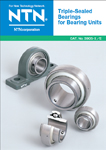
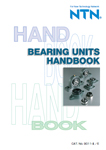
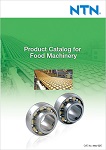
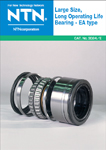
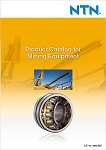
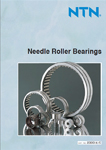
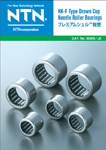
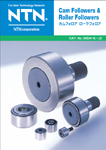
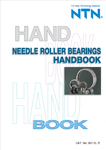
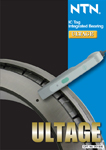
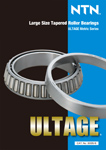
![Photo: Sealed Four Row Tapered Roller Bearings for Rolling Mill Roll-Necks [CROU..LL Type]](/content/files/picture/thumb3801.jpg)
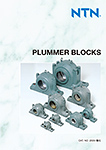
![Photo: ULTAGE Spherical Roller Bearings [Type EA, Type EM]](/content/files/picture/thumb3033.jpg)
![Photo: Spherical Roller Bearings with High-strength Cage [EMA Type]](/content/files/picture/thumb3036.jpg)
![Photo: Sealed Spherical Roller Bearings [WA Type]](/content/files/picture/thumb3703.jpg)
